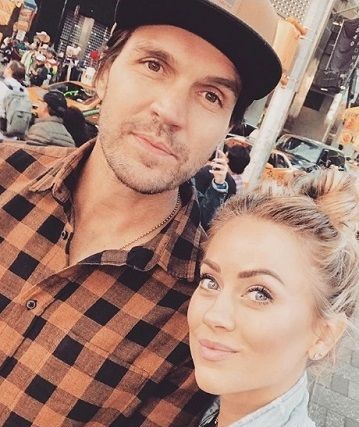How to Properly Insure Your Pickleball Facility
In recent years, pickleball has exploded in popularity across the United States and globally. As more people embrace the sport, the demand for dedicated pickleball courts and facilities has also increased. Whether you own a community center with multiple courts, a private pickleball club, or a newly built facility, ensuring that your facility is properly insured is crucial to protecting your investment, your patrons, and your employees. The complexities of insurance can be daunting, but understanding how to navigate this landscape is essential for running a safe, secure, and legally compliant facility.
This article will guide you through the various types of insurance necessary for your pickleball facility, why you need each type, and how to properly assess and obtain coverage.
Understanding the Risks
Before diving into insurance specifics, it’s important to understand the types of risks that a pickleball facility faces. These risks generally fall into two categories: liability risks and property risks.
1. Liability Risks
Liability risks involve situations where someone could be injured, or where damages occur, due to the operation of your pickleball facility. Examples include:
- Injuries to Players: Pickleball is a physically demanding sport, and players can suffer injuries ranging from sprained ankles to more severe incidents like concussions or fractures.
- Injuries to Spectators: Injuries can also occur off the court, such as spectators being hit by errant balls or tripping over equipment.
- Employee Injuries: If you have employees or coaches, there’s a risk that they may get injured while working, whether on the court, while maintaining the facility, or elsewhere.
2. Property Risks
Property risks involve damages to the physical facility itself. These can result from:
- Natural Disasters: Hurricanes, tornadoes, earthquakes, floods, and other natural events can damage courts, lighting systems, or clubhouse facilities.
- Vandalism or Theft: Pickleball facilities, particularly those that are outdoor or in public spaces, can be vulnerable to vandalism or theft of equipment, furniture, or other assets.
- Equipment Failure: Mechanical failures or wear-and-tear of essential facility components, such as nets, flooring, or lighting systems.
These are just some of the potential risks you need to consider when ensuring your facility. Proper coverage can help protect you from both minor and major setbacks, ensuring that your business can recover quickly.
Types of Insurance Needed
There are several key types of insurance you’ll need to ensure your pickleball facility is adequately covered. Let’s explore these in detail:
1. General Liability Insurance
General liability insurance is the cornerstone of any facility’s insurance portfolio. This insurance protects against third-party claims of bodily injury or property damage that occur on your premises.
- Why You Need It: If a player slips and falls on your courts or a spectator is injured by a ball, general liability insurance will help cover the costs of medical bills, legal fees, and other related expenses.
- Coverage Considerations: Be sure to include coverage for both bodily injury and property damage. Also, consider coverage for personal injury (e.g., defamation or invasion of privacy) in case an incident occurs in a non-physical manner.
2. Property Insurance
Property insurance protects the physical assets of your facility from damages caused by fire, storm, vandalism, or other covered events.
- Why You Need It: If a storm causes significant damage to your indoor courts or the clubhouse, property insurance helps cover the cost of repairs or replacement. Similarly, if equipment like nets or lighting systems is damaged or stolen, property insurance would help.
- Coverage Considerations: Make sure your policy covers all aspects of your facility, including courts, buildings, fences, and any other assets on-site. You may also want to explore whether the insurance covers the cost of temporary relocation or repair in case your facility is unusable due to damage.
3. Workers’ Compensation Insurance
If you have employees—whether they are full-time, part-time, or seasonal—workers’ compensation insurance is mandatory in most states.
- Why You Need It: This type of insurance covers medical costs and lost wages for employees who are injured while working at your facility. If a coach sprains an ankle while demonstrating a technique or a maintenance worker is injured while repairing equipment, workers’ compensation will provide coverage for those incidents.
- Coverage Considerations: Ensure that the insurance includes both medical coverage and compensation for lost wages. Depending on the size of your facility, it might also be worth considering supplemental insurance for high-risk roles (e.g., maintenance staff working with heavy machinery).
4. Commercial Auto Insurance
If your pickleball facility operates vehicles—whether to transport equipment, staff, or players—commercial auto insurance is necessary.
- Why You Need It: This coverage will protect your vehicles in the event of an accident, theft, or vandalism. For example, if you have a van to shuttle players to tournaments or a truck for equipment transportation, commercial auto insurance will provide financial protection.
- Coverage Considerations: Be sure to have liability coverage, collision coverage, and comprehensive coverage for any company-owned vehicles. If employees use their personal vehicles for work-related tasks (e.g., driving for an event), you may need to have a non-owned auto liability policy.
5. Umbrella Insurance
Umbrella insurance is an additional layer of liability coverage that kicks in when your standard liability insurance limits have been exhausted.
- Why You Need It: If an accident at your facility results in severe injuries or a lawsuit, general liability insurance may not be enough to cover all costs. Umbrella insurance provides extra protection against large claims, helping to ensure your facility doesn’t face financial ruin from a single incident.
- Coverage Considerations: It’s typically worth considering umbrella insurance if you expect a high volume of visitors or if your facility hosts tournaments, where the risk of accidents and claims could be higher.
6. Event Insurance
If your pickleball facility hosts tournaments, camps, or special events, event insurance is crucial.
- Why You Need It: Events often come with unique risks, including cancellation due to unforeseen circumstances (like weather or illness), third-party injuries, and property damage. Event insurance can help mitigate these risks.
- Coverage Considerations: Coverage should address event cancellations, vendor no-shows, medical emergencies, and accidents that occur during events. It can be tailored for specific events, whether you’re hosting a local competition or a large regional championship.
7. Directors and Officers (D&O) Insurance
If your facility is structured as a non-profit or has a board of directors, D&O insurance is essential.
- Why You Need It: D&O insurance protects the personal assets of the board members and executives in case they are sued for alleged wrongful acts in their capacity as decision-makers. If your board faces a lawsuit over decisions affecting the facility’s operations, D&O insurance helps cover legal costs and settlements.
- Coverage Considerations: This coverage is particularly important for non-profit pickleball organizations or those with a volunteer-run board.
8. Cyber Liability Insurance
For pickleball facilities that manage online bookings, memberships, or store sensitive data (like credit card information), cyber liability insurance is becoming increasingly important.
- Why You Need It: Cyber insurance helps protect against data breaches or cyberattacks that could compromise customer or business data. It can cover the cost of notification, legal fees, and even ransom payments in the event of a ransomware attack.
- Coverage Considerations: If you store customer data, make sure to get coverage for data breach expenses, cyber extortion, and system damage.
How to Assess Your Insurance Needs
To properly insure your pickleball facility, it’s important to assess your specific needs. Consider the following factors:
- Size of Your Facility: Larger facilities with more courts and employees face greater risks and thus require more extensive insurance coverage.
- Location: If your facility is located in an area prone to natural disasters (like hurricanes or floods), you may need to customize your property insurance to account for these risks.
- Type of Facility: Public or community centers might have different liability risks than private clubs, so assess the level of public access and the potential for accidents accordingly.
- Activities Held: Hosting tournaments, leagues, or other special events can increase liability and property risks, so you’ll need extra coverage to protect against these.
- Legal Requirements: Consult with an insurance broker or attorney to make sure your facility complies with local regulations and industry standards.
Working with an Insurance Broker
Given the complexities of insuring a pickleball facility, it’s highly recommended to work with an experienced insurance broker. An insurance broker can:
- Help you assess your risks and determine the appropriate coverage.
- Shop around with multiple insurers to find the best rates and policies.
- Ensure that your policy is tailored to your specific needs and facility size.
Conclusion
Properly insuring your pickleball facility is not only a smart business move, but also an essential one for safeguarding your investment and ensuring the safety of your patrons and staff. By understanding the types of insurance available, assessing your facility’s unique needs, and working with a trusted insurance broker, you can ensure that your facility is adequately covered in the event of accidents, property damage, or other unforeseen incidents.
As the sport of pickleball continues to grow, having the right insurance in place will give you peace of mind and allow you to focus on providing a top-tier experience for your players.






